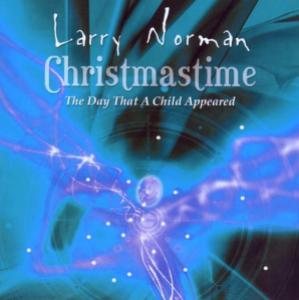Every time I watch “Miracle on 34th Street,” I get a strange, hopeful feeling that this just might be true. Who knows? The guy in the red suit down at the mall might just be the real thing. All of the sudden, the anxious, excited, hopefully pangs of childhood stir in my belly. Instantly, I remember visiting Santa Claus as a child. Instantly, the past becomes the present.
I don’t remember ever being afraid of Santa…or clowns for that matter. I do remember being shy and a little bit nervous. The kind of excited nervousness one might feel when looking out across the Niagara Falls. Standing that close to such concentrated power is both exhilarating and a little overwhelming. That’s how Santa made me feel. Someone with such awesome power was nearby.
During Christmas, Santa visited Gimbels, our local department store. During the rest of the year, other visitors appeared: the Jolly Green Giant, Humpty Dumpty, a variety of clowns and a host of other storybook characters. Each time we came to the store, I would peer at them through the racks. My heart raced, my hands sweated, and I stood awestruck just watching these otherworldly characters.
For a little boy with large imagination, these characters somehow represented the sacred, the holy other. The limitations of our world did not confine them. Their sizes, their colors, their powers and their stories all broke the ordinary conventions of this world. These characters were extra-ordinary.
At some point, the clock struck midnight and the magic of childhood evaporated. The big clowns climbed back in their little cars and drove away. Santa lost his sleigh and became just another sales associate trying to help the malls make more money.
Yet from time to time, I feel the pangs again. From time to time, I begin to see again and sometimes even believe. When I watch movies like “Miracle on 34th Street” I wonder, “Is it possible?” Then like waking up from Dorothy’s Oz, I see these characters all around me—in the faces of my friends.
As I look at my friends, I realize that the characters never really did disappear. They’ve been with me, all along. I just grew accustomed to the magic and lost my sight.
All these larger than life characters, like Santa Claus and the Jolly Green Giant, exaggerate certain features. Santa has an unlimited supply of gifts for the world. The Jolly Green Giant is jolly, green and a giant. Chesterton used to say, “All the exaggerations are right, if they exaggerate the right thing.” Maybe a little exaggerated giving is not so bad. And of course, no one can be too jolly. Can they?
As far as green goes, well, I’m not sure what to say. But my folks did tell me about a man who ate so many carrots his skin turned orange.
The more I think about it, the more I realize that I have known some pretty exaggerated characters in my life. I once had a friend who was convinced he possessed some of Spiderman’s abilities. And I must admit, he did seem to climb up walls fairly easily.
I had another friend who wanted to possess some mind reading power. He would tell people to think of a card and then promptly present the supposed card. Usually the thought and the card did not match. He may not have been a mind reader, but he did possess an amazing discernment of people and their moral fiber. In college, I studied Astronomy with a guy who looked like he came right off the mountaintop with a shaved head, overalls and big teeth. And yet, he was a know it all: a real one. He really did know it all. His ability to remember facts and details astounded me.
The more I look around, the more I realize these fantastic fairy tale characters are real people. And they’re everywhere I turn. They’re in front of me in the grocery store. They’re beside me on the highway. They’re taking my lunch order.
I’ve come to believe everyone I meet is extra-ordinary. There is no ordinary person. Each person is exceptional, unique, larger than life, and mysterious.
I could spend a lifetime studying one person, any person, and never fully plummet the depths of their mystery. Created in the image of God, human persons reveal aspects of wonder and glory that can be breathtaking. Their power for good, and evil, is overwhelming.
In the common graces of God, each person I encounter is wonder-filled. When I finally begin to see this, I feel the pang again. I realize I’ve been born into a fairy tale world of fascinating characters. There are no ordinary, common unexceptional people. Each person is a treasure, a marvel, a glorious being, a sacred other. In spite of our flaws, I can see through each person to see the hand of our Creator, revealing His glory in all things.
This season I am seeking new eyes to really see the majestic wonder of all the people around me. Open your eyes, you might be surprised at who you might meet.
